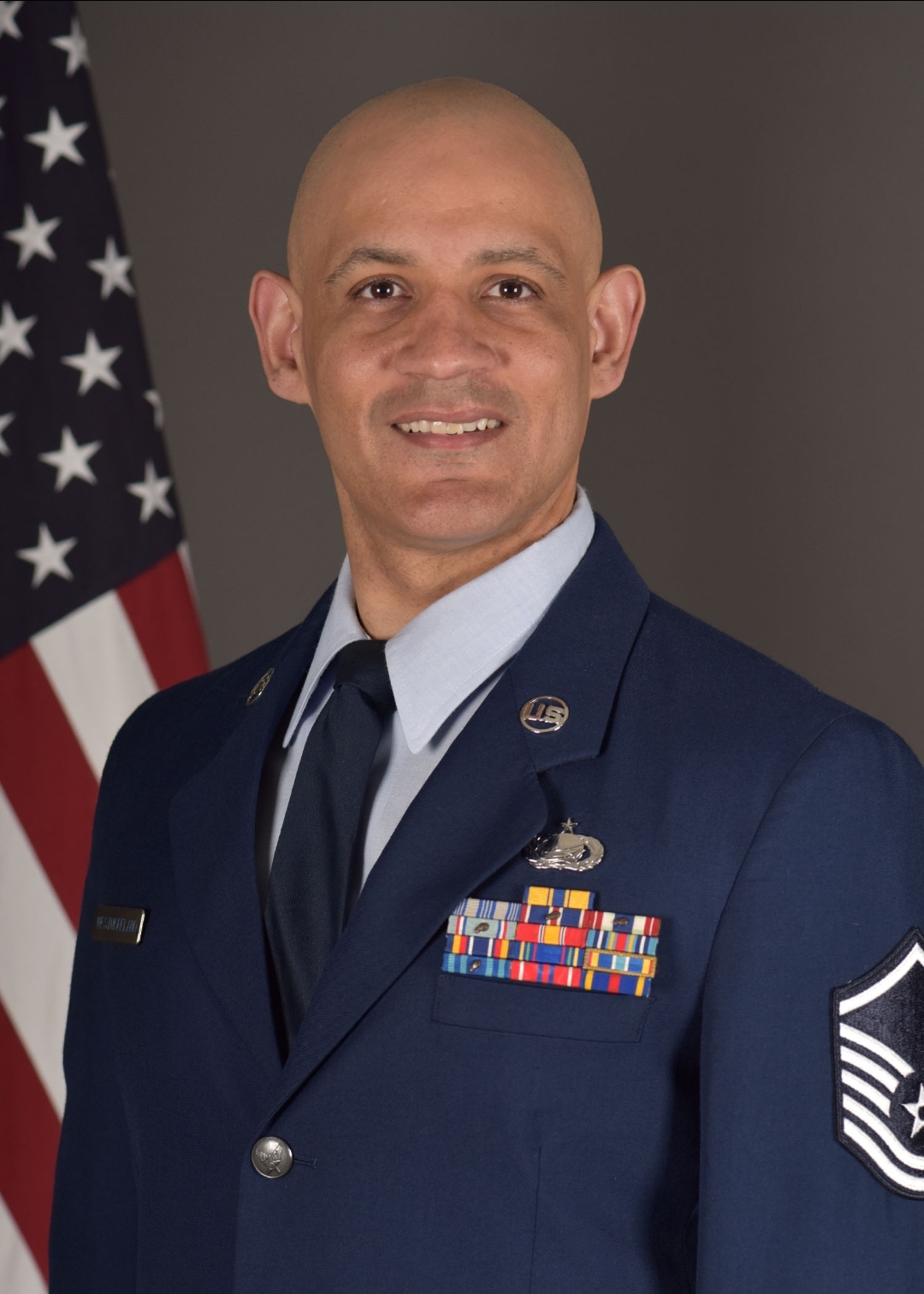By Emily Starbuck Gerson
When Master Sergeant Thomas L. Westmoreland enlisted in the Air Force, he already carried a sense that it was important to embrace diversity and inclusion. But after serving during Don’t Ask, Don’t Tell, and having a gay troop come out to him soon after the repeal, he realized how important it was to be an intentional LGBTQ ally.
Later, when the transgender military ban was first repealed in the Obama administration, one of Westmoreland’s colleagues came out as transgender. Again, Westmoreland felt it was important to show his support and be a visible ally — and that support was especially crucial to that troop when the ban was reinstated and her career was put into question.
As Westmoreland has risen through the ranks and taken on more leadership positions, he continues to advocate for inclusion and supporting Airmen in marginalized communities. Westmoreland is currently stationed at Royal Air Force Base Mildenhall in England, where he lives with his wife and children.
Modern Military Association of America: When did you first find yourself consciously becoming an LGBTQ ally in the military?
Thomas L. Westmoreland: Before I joined the military I always felt like everyone deserves to love who they love and be who they feel they are. When I first joined, Don’t Ask, Don’t Tell was still in effect. So, for the first two years of my service, we didn’t have conversations about anyone’s sexuality or who they felt they are. I still felt like everyone deserved to love who they wanted and to be who they are.
In 2013, shortly after becoming an NCO, a new troop came to me about his living situation. He told me that he had gotten married and needed to start the process of getting out of the dorms. I asked, “When do they get here?” He replied, “He will be here in three weeks.”
I started to outline what needed to be done. My troop reiterated that his spouse was a he. He was looking for my reaction, and I continued on with what needed to be done. My troop later explained that he was scared to tell me that he had a same-sex marriage and that he thought it would affect how he was treated. I felt it was important to understand that he was in a same-sex marriage, but he needed help with his situation and the fact that his spouse was the same sex as him didn’t change that.
I had always felt I was an ally, but at that moment I took it upon myself to make sure everyone I meet feels they are valued regardless of how they identify. I often think about the courage it took for one of my transgender colleagues to come out and be who she is. The most important thing I think I can do as an ally is make everyone feel comfortable being who they are. How they identify themselves doesn’t change the level of care or support that I give them.
MMAA: As an active duty servicemember, and especially a leader and manager like yourself, why do you think it’s important to value diversity in general? And why do you think it’s important for leaders to be visible allies to the LGBTQ community?
TLW: Every member that serves in our Air Force is valuable. Diversity is important because we need to have different perspectives. Not just in how we apply tactics in warfare, but how we take care of our troops, engage with them, and ultimately prepare them to be mentally ready for the mission.
We can’t afford to miss any link in our chain. Every person has to feel they are valuable and that they are respected for them to be at their full potential.
As a leader I am a visible advocate for the LGBTQ community becuase everyone needs to know they are a part of our team. I believe that our force values the members that identify as LGBTQ; sometimes it takes one ally to show support to let other allies know they should also show support. I will gladly be the flagbearer for that support.
MMAA: What is your advice for other leaders in the military on how to be an ally to the LGBTQ community, or any other marginalized groups?
TLW: An ally is someone who is supportive of a group that they don’t identify as. We should all be allies to each other. The diversity of our force is going to grow. From that diversity we will be a better force.
We must know that the brothers and sisters that stand next to us come from different walks of life and we must understand them, embrace them, and ensure they feel valued. Everyone has an Air Force journey, and a life journey. It’s our job as leaders and as Airmen to support that journey and foster growth in every Airmen, Guardian, Sailor, Marine, or Soldier that we come into contact with.
© Copyright modern military association | EIN 52-1845000 | all rights reserved | legal & Financial
